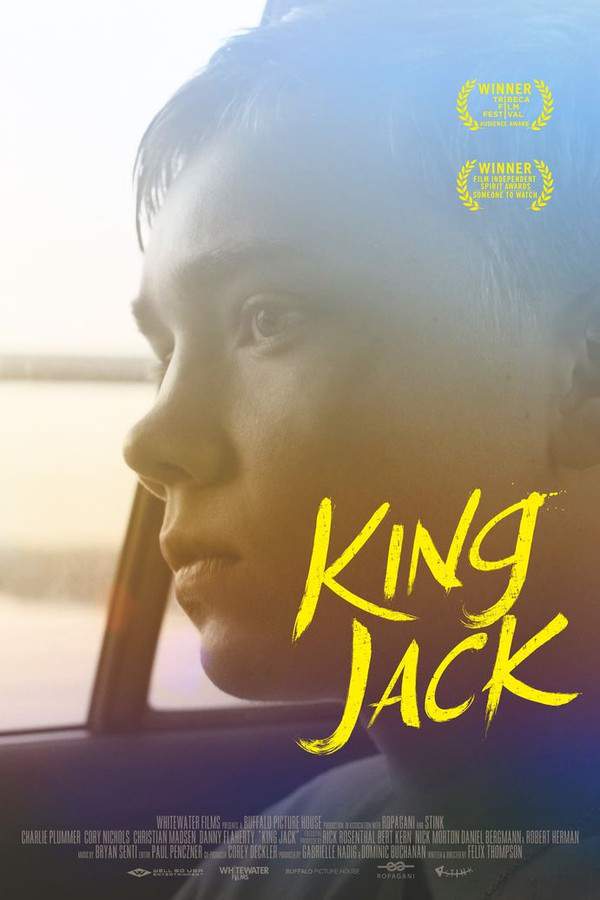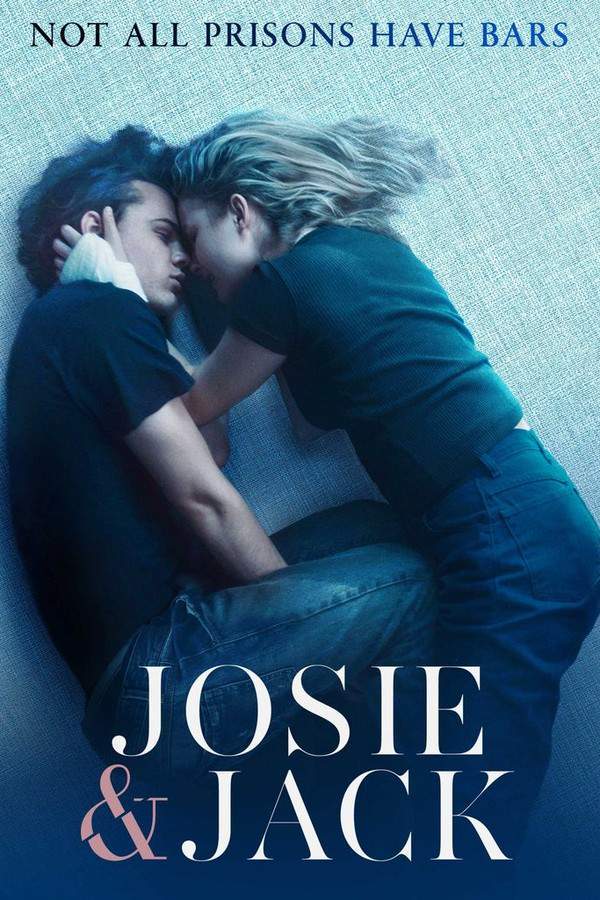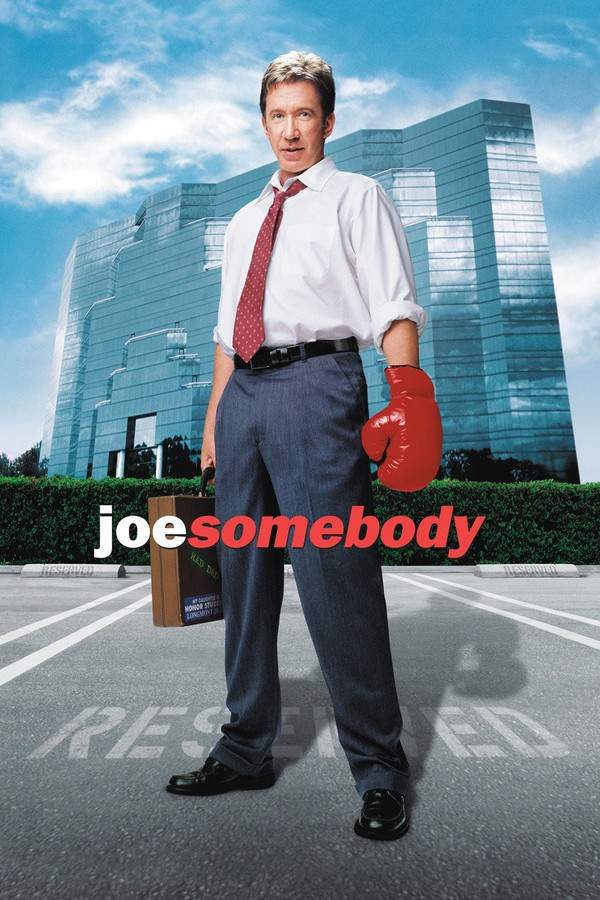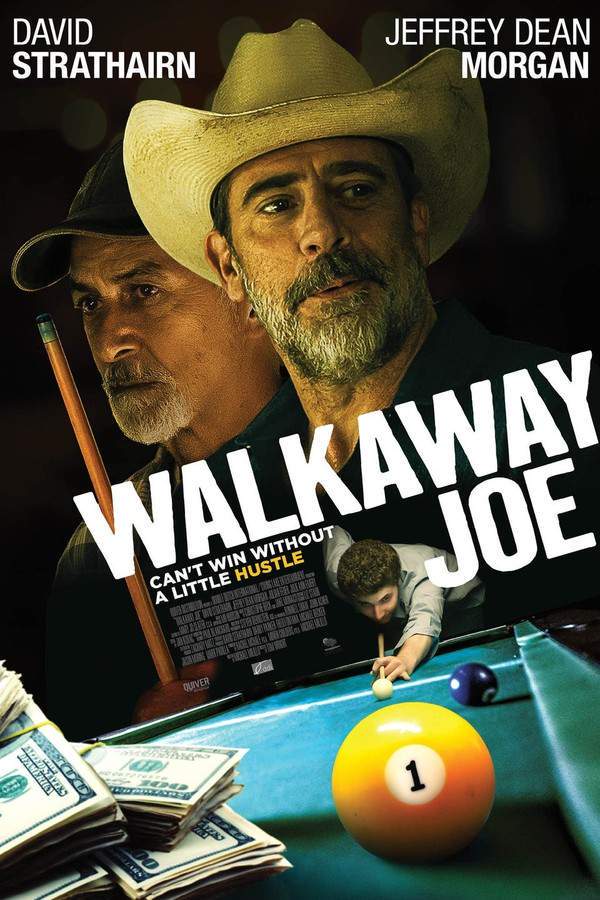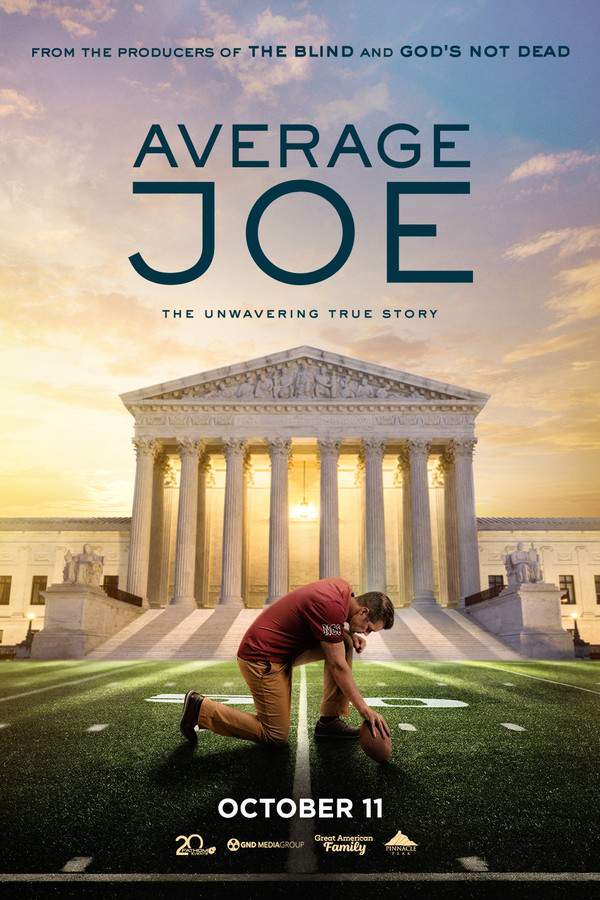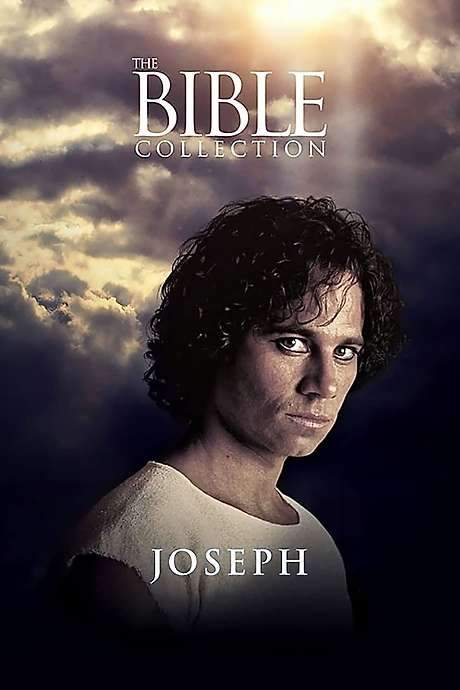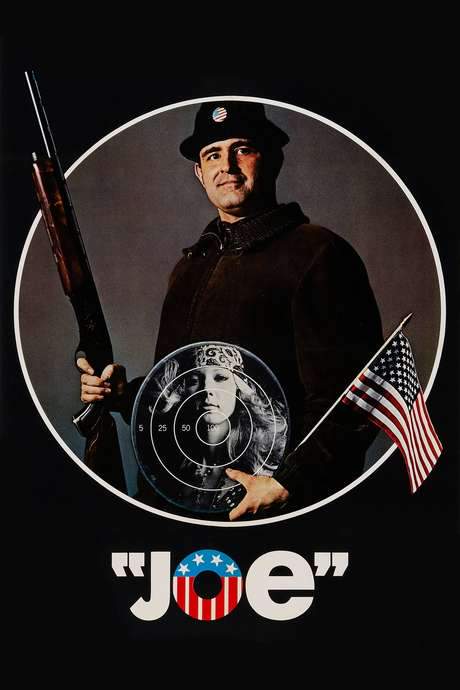Joe the King 1999
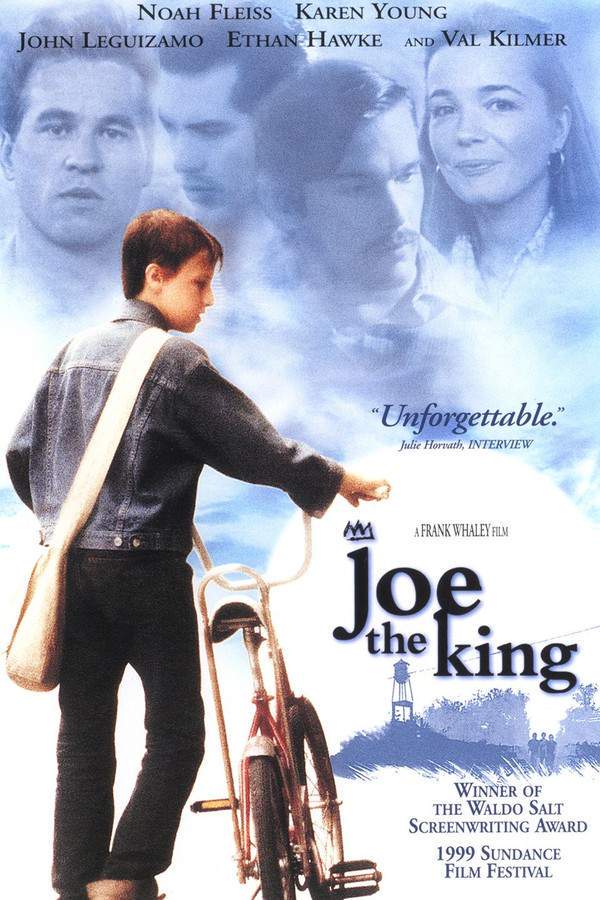
Driven by frustration and anger stemming from a difficult home life, a teenager named Joe embarks on a journey of self-discovery and rebellion. Noah Fleiss portrays Joe in this story of broken dreams and shattered hopes, as he takes matters into his own hands and confronts the turmoil surrounding him.
Does Joe the King have end credit scenes?
No!
Joe the King does not have end credit scenes. You can leave when the credits roll.
Meet the Full Cast and Actors of Joe the King
Explore the complete cast of Joe the King, including both lead and supporting actors. Learn who plays each character, discover their past roles and achievements, and find out what makes this ensemble cast stand out in the world of film and television.
No actors found
External Links and Streaming Options
Discover where to watch Joe the King online, including streaming platforms, rental options, and official sources. Compare reviews, ratings, and in-depth movie information across sites like IMDb, TMDb, Wikipedia or Rotten Tomatoes.
Ratings and Reviews for Joe the King
See how Joe the King is rated across major platforms like IMDb, Metacritic, and TMDb. Compare audience scores and critic reviews to understand where Joe the King stands among top-rated movies in its genre.

64
Metascore
6.8
User Score


68%
TOMATOMETER

72%
User Score

6.7 /10
IMDb Rating

61
%
User Score
Take the Ultimate Joe the King Movie Quiz
Challenge your knowledge of Joe the King with this fun and interactive movie quiz. Test yourself on key plot points, iconic characters, hidden details, and memorable moments to see how well you really know the film.
Joe the King Quiz: Test your knowledge on the intense family drama of 'Joe the King' and its themes of struggle and survival.
What is the primary setting of 'Joe the King'?
California
Upstate New York
Texas
Florida
Show hint
Full Plot Summary and Ending Explained for Joe the King
Read the complete plot summary of Joe the King, including all major events, twists, and the full ending explained in detail. Explore key characters, themes, hidden meanings, and everything you need to understand the story from beginning to end.
In the mysterious hills of Upstate New York during the unsettling 1970s, the Henry household is engulfed in turmoil. Fourteen-year-old Joe Henry has become all too familiar with a life steeped in anxiety, constantly navigating the toxic environment created by his father, Bob (a figure consumed by anger), and his mother, Theresa (a woman paralyzed by her own fears). Joe’s older brother, Mike, finds himself at a crossroads, torn between being a protective sibling and pursuing his own social goals, leading him to maintain a distance from Joe, concerned that association with him might tarnish his reputation. Adding to Joe’s struggles are the harsh taunts from his classmates and the unwelcome pressure from those to whom his father owes money.
The family’s situation worsens dramatically when Bob’s repressed rage surfaces one fateful evening, resulting in chaos that leaves shattered records in its wake. Upon returning from work, Joe is confronted with the wreckage of his family’s tenuous stability, discovering that Bob’s explosion of rage ignited from an unsettling discovery in Theresa’s purse—condoms—which not only dismantled any remaining fabric of family unity but also hinted at her secretive life as a prostitute, driven to desperate measures to support the family. This tangled web of secrets, shame, and financial hardship pushes Joe to consider drastic actions.
In an effort to relieve the overwhelming burden on his shoulders, Joe accepts a full-time position at a local diner after school, a choice that demands the sacrifice of both his education and personal well-being for mere survival. Working under the radar due to his age, he finds himself exploited by callous employers who show him little respect and offer scant wages. However, amidst this strife, Jorge, one of his coworkers, emerges as a ray of hope, tirelessly standing up for Joe against his adversaries.
As Joe battles to keep afloat, he is assigned a guidance counselor, Leonard Coles, whose well-meaning demeanor ultimately proves to be inadequate. During their initial meeting, Coles’ careless interruptions and lack of sensitivity only serve to intensify Joe’s feelings of isolation, leaving him feeling overlooked in the eye of a storm.
As the story continues to unfold, Joe embarks on a series of desperation-driven thefts—picking locks to loot from stores and vehicles, or rifling through mailboxes—all in an effort to ease Bob’s mounting financial woes and restore the items Theresa has lost. His family’s ongoing poverty forces him into outright stealing food from the diner, often neglecting his own meals just to ensure his brother is fed. This desperate cycle spirals out of control when Joe seizes an opportunity following Jorge’s early departure, realizing that their bosses, Jerry and Mary, are away for the weekend, leaving their apartment, situated directly above the diner, unguarded.
Under the veil of night, Joe stealthily enters through an upstairs window to ransack the apartment in search of a locked box rumored to contain a significant amount of cash. Just as he lays his hands on the prized possession, he catches a glimpse of his reflection in a mirror, prompting an introspective moment filled with self-disgust. Despite his injured leg, he manages to escape before Roy, their infatuated boss, returns to the apartment, blissfully unaware of the intruder’s presence.
The following day, as Joe arrives for another shift at the diner, he is met outside by Jorge’s piercing gaze, who offers a grave warning: “I know you’re the one who broke in and stole from us.” True to his loyal nature, Jorge decides not to betray Joe, instead urging him to stay low and avoid drawing attention. As Joe departs, Jorge’s parting wisdom lingers in his mind: “Don’t worry about getting caught; Jerry and Mary think it was Mary’s ex-husband who did it, while Roy thought you were just a giant rat scurrying down the stairs.” With these cautions weighing heavily on him, Joe grapples with the dangers of returning to the diner versus the potential repercussions of staying away altogether.
Having reaped the rewards of his illicit actions, Joe indulges in a spending spree, acquiring pristine copies of Theresa’s lost music that Bob had destroyed. He stashes these precious tokens of his wrongdoing under the floorboards in his home, accompanied by a cryptic note meant solely for his mother. However, his elaborate scheme begins to unravel after confiding in his dear friend Ray, who carelessly divulges this sensitive information to Coles. Concerned for Joe, Coles takes it upon himself to notify Jerry at the diner, where he threatens to expose their illegal practices should they fail to reform their ways.
Initially compliant, Jerry soon becomes alarmed when Coles unwittingly reveals that Joe had sustained a significant injury while working at the diner—a deep cut to his leg. This crucial insight allows Jerry to piece together the connection between Joe’s misfortune and the audacious theft, prompting him to contact the authorities. The fallout is swift and unforgiving: Joe is arrested and sentenced to six months in a juvenile detention facility.
In the wake of this dramatic turn, Bob, ever the pragmatist, surprisingly displays a moment of compassion as he drives Joe to the bus that will take him to his new life. This rare instance of empathy is accompanied by cautionary advice, urging Joe not to repeat the mistakes that led him to this dark chapter of despair and self-destruction. As Joe steps off the vehicle and boards the bus, the film concludes with a poignant scene: Joe traversing the dimly lit hallway of his new environment, his face reflecting a mixture of uncertainty and dread.
Uncover the Details: Timeline, Characters, Themes, and Beyond!

Coming soon on iOS and Android
The Plot Explained Mobile App
From blockbusters to hidden gems — dive into movie stories anytime, anywhere. Save your favorites, discover plots faster, and never miss a twist again.
Sign up to be the first to know when we launch. Your email stays private — always.
Watch Trailers, Clips & Behind-the-Scenes for Joe the King
Watch official trailers, exclusive clips, cast interviews, and behind-the-scenes footage from Joe the King. Dive deeper into the making of the film, its standout moments, and key production insights.
Joe the King Themes and Keywords
Discover the central themes, ideas, and keywords that define the movie’s story, tone, and message. Analyze the film’s deeper meanings, genre influences, and recurring concepts.
Joe the King Other Names and Titles
Explore the various alternative titles, translations, and other names used for Joe the King across different regions and languages. Understand how the film is marketed and recognized worldwide.
Similar Movies To Joe the King You Should Know About
Browse a curated list of movies similar in genre, tone, characters, or story structure. Discover new titles like the one you're watching, perfect for fans of related plots, vibes, or cinematic styles.
Quick Links: Summary, Cast, Ratings, More

What's After the Movie?
Not sure whether to stay after the credits? Find out!
Explore Our Movie Platform
New Movie Releases (2026)
Famous Movie Actors
Top Film Production Studios
Movie Plot Summaries & Endings
Major Movie Awards & Winners
Best Concert Films & Music Documentaries
Movie Collections and Curated Lists
© 2026 What's After the Movie. All rights reserved.












